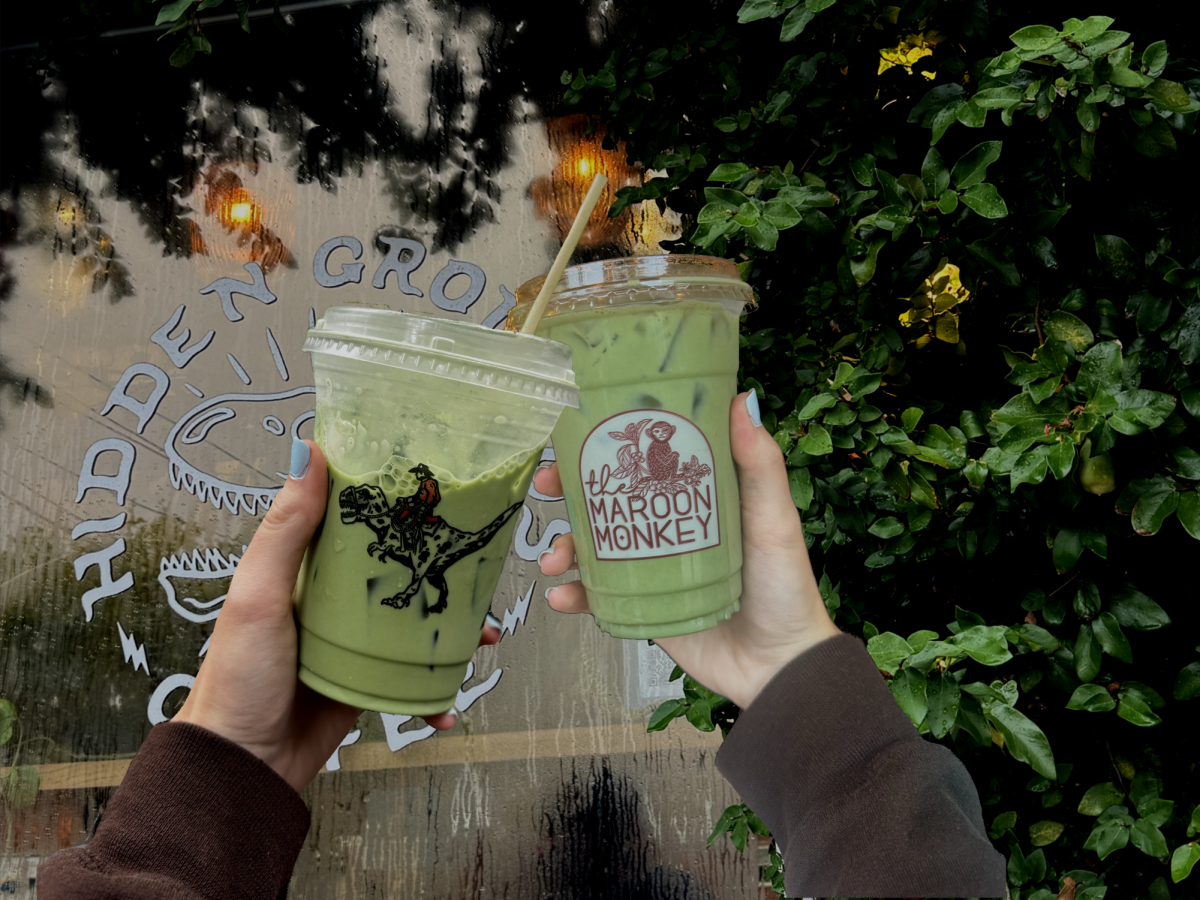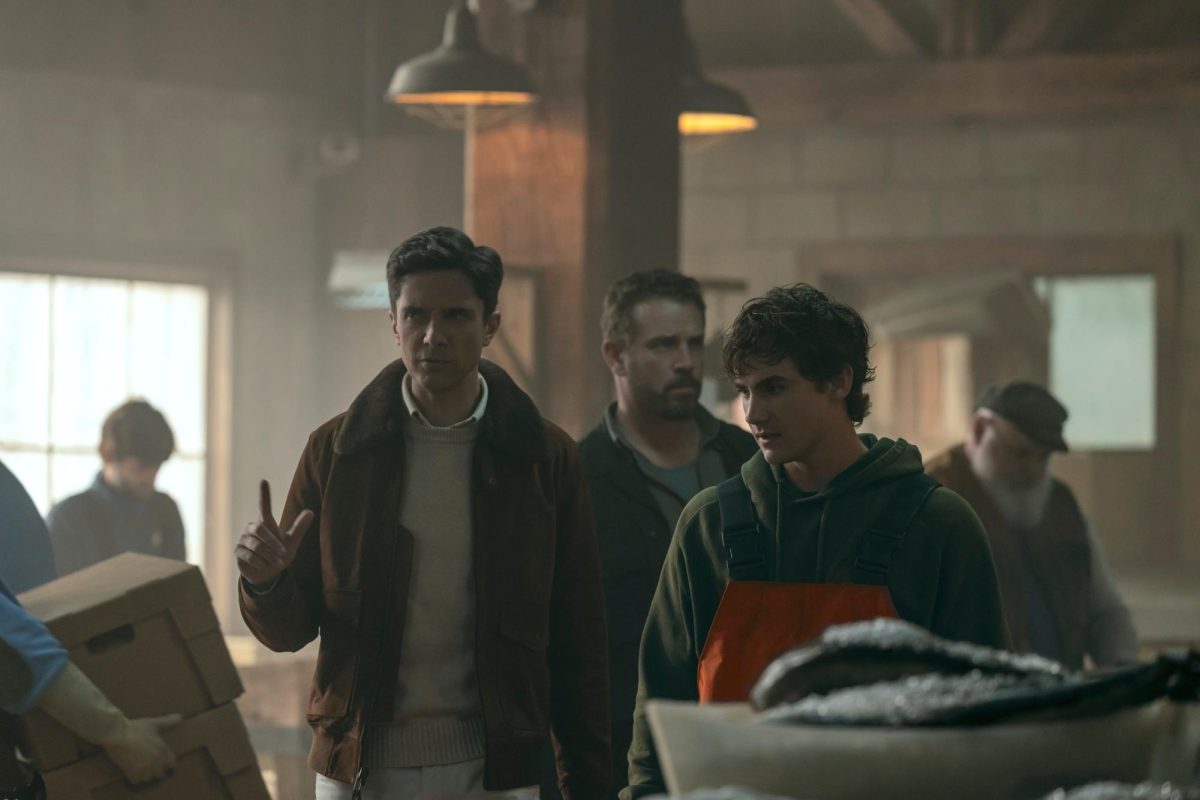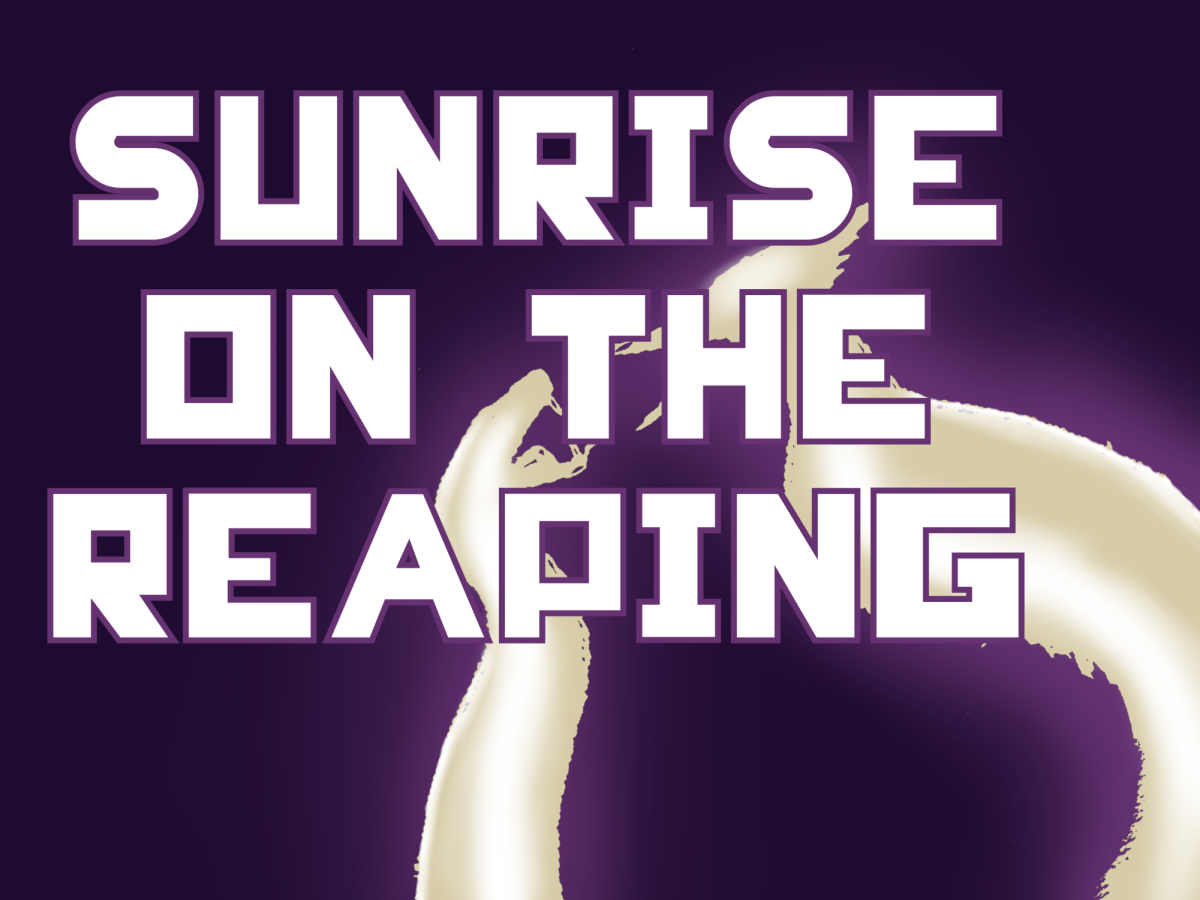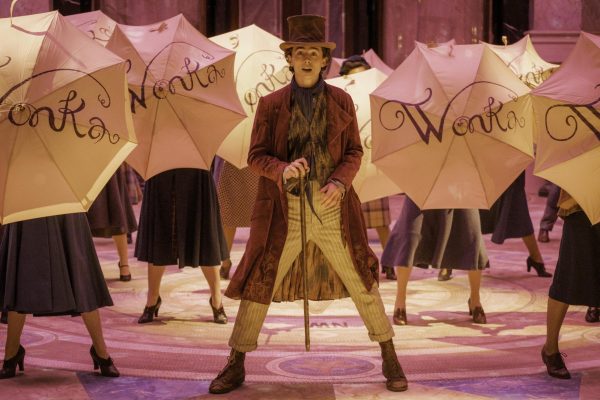
Despite the lack of hype, “Wonka” proved to be a “scrumdiddlyumptious” box office success. Starring Timothée Chalamet as the title role in an all-star cast, the musical comedy exceeded expectations in the box office and ranked as the number one film in theaters at the end of 2023.
Being the third live-action film based on Roald Dahls’ book, “Charlie and the Chocolate Factory,” “Wonka” creates a backstory for the iconic character on how he became the whimsical, world-renowned chocolatier audiences are familiar with. The movie follows Willy Wonka as he adventures to the Galleries Gourmet, the place where the most notable chocolate sellers reside and sell their goods, to start his own chocolate shop and keep the dream he and his mother shared alive. When he arrives, he is met with adversaries in the forms of Slugworth (Paterson Joseph), Prodnose (Matt Lucas) and Fickelgruber (Matthew Baynton). The infamous trio are established chocolatiers who formed a Chocolate Cartel and feared the competition that Wonka’s extraordinary treats would bring. Recruiting the Chief of Police (Keegan-Michael Key) and a priest named Father Julius (Rowan Atkinson) for their plans, the chocolatiers bribed their accomplices with chocolates throughout the film in an attempt to destroy Wonka and his business. However, Wonka recruited Noodle (Calah Lane) and others who were indentured servants at the Scrubbit and Bleacher Hotel to help him navigate the city and sell his chocolates under the nose of the Chief of Police. By the end of the film, the dishonest dealings and bribery of the antagonists were revealed, and Wonka found the location that would become his future candy factory.
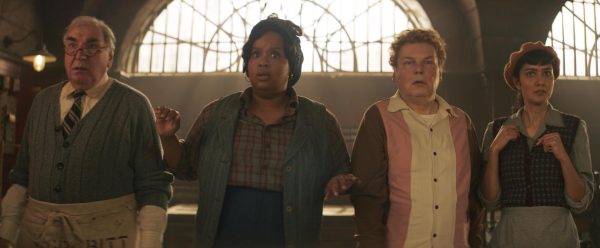
The film was visually stunning, utilizing the vibrant colors that audiences are familiar with from the first two adaptations, as well as playful scenes such as when Wonka and Noodle used a gigantic bunch of balloons to float to the top of a building. The familiar characters of Wonka and the Oompa-Loompa (Hugh Grant) were true to the original book and adaptations. Wonka remained casually eccentric and cheerful while the Oompa-Loompa kept to a macabre and cynical outlook, which is reminiscent of the original songs that the Oompa-Loompas sung whenever a child did something wrong and suffered a terrible fate in the book. However, this interpretation of the Oompa-Loompa gave the character more dimension beyond being a narrative singer; his bitterness wittily clashed with Wonka’s personality and he was able to have an impact on the plot, such as saving Wonka’s life. This was an important addition because it gave the film a chance to round out a well-known, beloved and iconic character, and allowed the Oompa-Loompa a chance to explain his personal motivation in working with Wonka at the end.
One thing that seemed off about the film was that, despite it being a musical, the songs occasionally felt forced and awkward and often did very little to advance the plot or character development. “Wonka” should have cut back on some of the lackluster songs, such as “You’ve Never Had Chocolate Like This” and “Scrub, Scrub,” in order to let the better musical numbers shine, such as “For a Moment,” which put a spotlight on Wonka and Noodle’s growing friendship and the positive effect that Wonka has on people as they explore the city at night.
Overall, the film was a pleasure to see, sharing sweet themes of the importance of family, friends and hard work.




